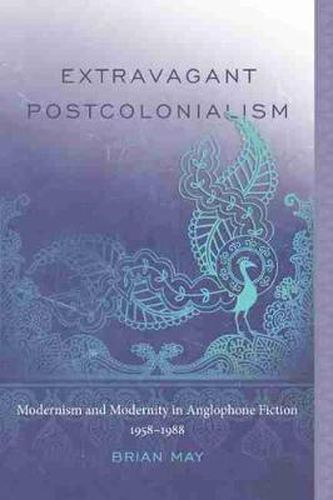Readings Newsletter
Become a Readings Member to make your shopping experience even easier.
Sign in or sign up for free!
You’re not far away from qualifying for FREE standard shipping within Australia
You’ve qualified for FREE standard shipping within Australia
The cart is loading…






Brian T. May argues that, contrary to widely held assumptions of postcolonial literary criticism, a distinctive subset of postcolonial novels significantly values and scrupulously explores a healthy individuality. These extravagant postcolonial works focus less on collective social reality than on the intimate subjectivity of their characters. Their authors, most of whom received some portion of a canonical western education, do not subordinate the ambitions of their fiction to explicit political causes so much as create a cosmopolitan rhetorical focus suitable to their western-educated, western-trained, audiences.
May pursues this argument by scrutinizing novels composed during the thirty-year postindependence, postcolonial era of Anglophone fiction, a period that began with the Nigerian Chinua Achebe’s Things Fall Apart and that ended, many would say, with the Ayatollah Khomeini’s 1989 publication of the Rushdie Fatwa. May contends that the postcolonial authors under consideration - Naipaul, Rushdie, Achebe, Rhys, Gordimer, and Coetzee - inherited modernism and refashioned it. His account of their work demonstrates how it reflects and transfigures modernists such as Conrad, Eliot, Yeats, Proust, Joyce, and Beckett. Tracing the influence of humanistic values and charting the ethical and aesthetic significance of individualism, May demonstrates that these works of extravagant postcolonialism represent less a departure from than a continuation and evolution of modernism.
$9.00 standard shipping within Australia
FREE standard shipping within Australia for orders over $100.00
Express & International shipping calculated at checkout
Brian T. May argues that, contrary to widely held assumptions of postcolonial literary criticism, a distinctive subset of postcolonial novels significantly values and scrupulously explores a healthy individuality. These extravagant postcolonial works focus less on collective social reality than on the intimate subjectivity of their characters. Their authors, most of whom received some portion of a canonical western education, do not subordinate the ambitions of their fiction to explicit political causes so much as create a cosmopolitan rhetorical focus suitable to their western-educated, western-trained, audiences.
May pursues this argument by scrutinizing novels composed during the thirty-year postindependence, postcolonial era of Anglophone fiction, a period that began with the Nigerian Chinua Achebe’s Things Fall Apart and that ended, many would say, with the Ayatollah Khomeini’s 1989 publication of the Rushdie Fatwa. May contends that the postcolonial authors under consideration - Naipaul, Rushdie, Achebe, Rhys, Gordimer, and Coetzee - inherited modernism and refashioned it. His account of their work demonstrates how it reflects and transfigures modernists such as Conrad, Eliot, Yeats, Proust, Joyce, and Beckett. Tracing the influence of humanistic values and charting the ethical and aesthetic significance of individualism, May demonstrates that these works of extravagant postcolonialism represent less a departure from than a continuation and evolution of modernism.